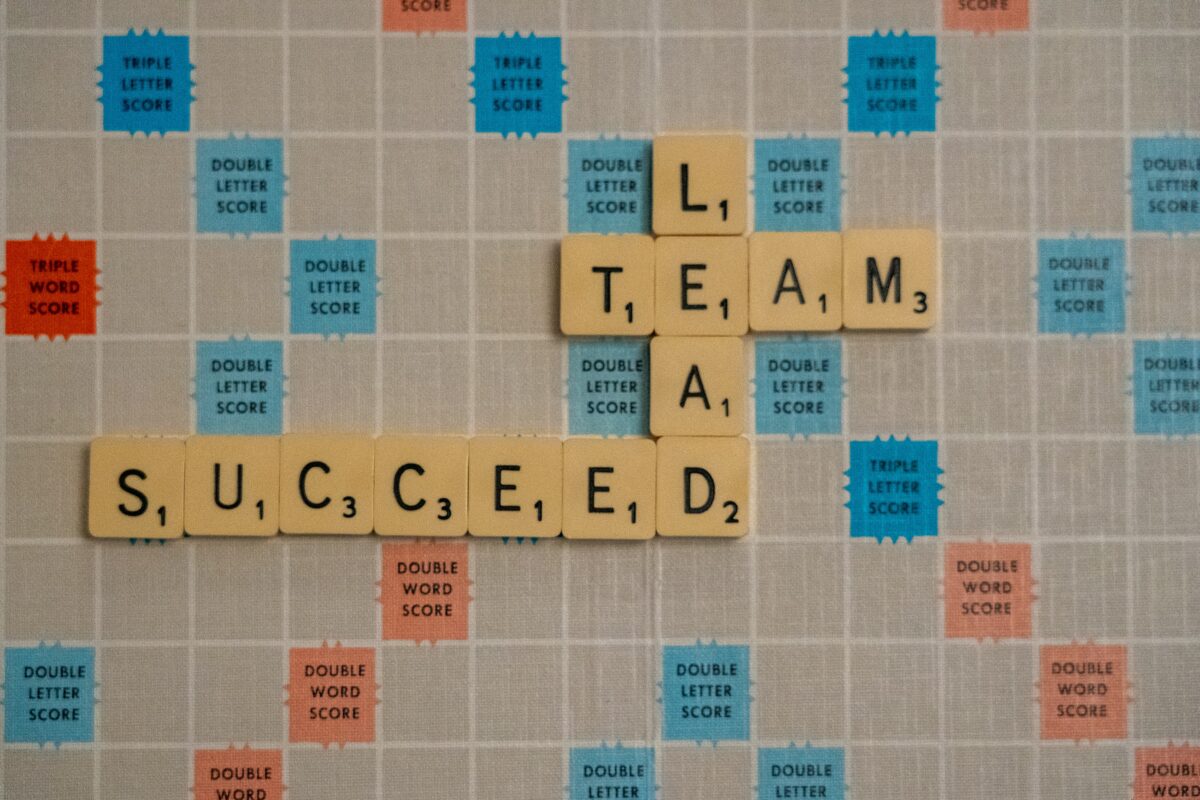What Leadership Skills To Include In A Job Description

In the modern workplace, many job roles will require a candidate with strong leadership skills, from team leader to senior management. In fact, every team member that you hire should have some management skills because they help nurture good relationships with co-workers and are essential for achieving goals and taking on more responsibility as the employee finds career success and begins to climb the career ladder.
Suppose you are a business owner, Human Resources professional, or hiring manager. In that case, it helps to start with a template job description when writing a job ad, choosing the leadership skills relevant to the job title. But, what leadership skills define good leaders, and why are they crucial for your team members?
This article highlights 10 core leadership skill categories and the many other skills that represent and quantify them.
Top Ten Leadership Skills

Here are the 10 leadership skills to include in your team leader or management job descriptions:
1. COMMUNICATION SKILLS
Communication skills can be verbal or written communication skills, leveraged face-to-face or across email, phone, social media, or online chat. A good leader in middle and senior management masters both to effectively communicate their intentions, business goals, and required tasks to be completed by team members. However, a great leader knows that effective communication isn’t solely about delivering information, with listening skills required to be effective.
Top skills and abilities under the communications moniker include:
- Active listening
- Articulation
- Body language (using and reading)
- Clarity
- Expression
- Presentation
- Public speaking
- Storytelling
- Verbal communication
- Written communication
2. MOTIVATION SKILLS
Motivation is a great leadership skill; the best leaders deploy it to inspire team members and encourage them to be more productive or effective. Motivating a team may be achieved through recognition, praise, or rewards.
Specific examples of effective leaders using their motivational skills include:
- Appreciating a different perspective
- Asking employees for feedback or input
- Challenge and goal setting
- Charisma
- Coaching
- Convincing
- Morale building
- Motivation
- Nurturing
- Praising staff
- Team-building
3. DELEGATION SKILLS
Great leaders know they can’t do everything themselves and need to relinquish some control and delegate responsibilities to junior team members. Delegating tasks is a skill employers should seek and requires the leader to assess employees’ abilities, giving the right jobs to the right team member.
Delegation skills for effective leadership include:
- Assessing staff weaknesses and strengths
- Delegation
- Expectation setting
- Performance evaluation
- Planning skills
- Prioritisation
- Resource planning
- Time management
4. FLEXIBILITY
The immediate needs of a business and its staff can change instantly. So, candidates for your leadership roles need to be flexible, overcoming obstacles that may unexpectedly come their way.
Hiring managers should seek skills related to adaptability, change management, and people management, such as:
- Accepting feedback
- Adaptability
- Flexibility
- Improvisation
- Negotiation
- People management
- Problem-solving
- Responsiveness
5. POSITIVITY

A healthy work environment requires a good leader with a positive attitude that can pull the team through stressful or busy periods. Many leaders use positivity to nurture and encourage the team to achieve goals. In the office and during weekly meetings, effective leadership might entail:
- Assisting others
- Caring
- Conflict management
- Diplomacy
- Friendliness
- Humour
- Positivity
- Rapport building
- Respectfulness
6. TRUSTWORTHINESS
Integrity and trustworthiness are crucial leadership abilities that reassure the team and let them know they can raise concerns and questions. The skills related to trust include:
- Accept blame
- Accountable
- Conscientious
- Consistent
- Credible
- Emotional intelligence
- Honest
- Integrity
- Moral
- Openness
- Reliable
- Respectful
- Trustworthy
7. CREATIVITY SKILLS
Leaders often face decisions where the answer is not clear. In these circumstances, leaders need to think outside the box and develop solutions and paths that are non-traditional. Creative thinking skills related to leadership include:
- Analysis
- Analytical thinking
- Creativity
- Curiosity
- Foresight
- Good judgement
- Ideation
- Imagination
- Innovation
- Listening
- Observation
- Open-mindedness
- Organisation
- Strategic thinking
- Vision
8. MENTORSHIP SKILLS
Building a strong team that can complete tasks and exceed goals is a primary responsibility of leadership. So, leaders should consistently be identifying opportunities for professional development through coaching and formal training. Mentoring leadership skills include:
- Advice giving
- Assessment
- Coaching
- Confidence building
- Empathy
- Expectation setting
- Identifying training needs
- Mentorship
- Positive reinforcement
- Respectfulness
- Teaching
9. RESPONSIBILITY
Leadership experience and ability are built upon the teams’ failures and successes. Therefore, good leaders need the ability and maturity to be accountable for mistakes and use change management to create solutions and improvements. Effective leadership skills associated with responsibility include:
- Accountability
- Acknowledgement
- Evaluation
- Forecasting
- Learning
- Problem resolution
- Responsibility
- Self-reflection
- Transparency
- Troubleshooting
10. COMMITMENT
Candidates for your leadership role need to do what they say they will, which may mean putting in extra hours and setting an example for junior team members. Likewise, if goals are set and rewards offered, these need to materialise if employees are to commit to the leader and your company. Effective leadership skills related to commitment include:
- Applying feedback
- Commitment
- Determination
- Passion
- Perseverance
- Personal and professional development
- Professionalism
- Promise keeping
- Strong work ethic
Top 100 Leadership Skills
Our complete list of leadership skills is below:
- Accept blame
- Accepting feedback
- Accountable
- Accountability
- Acknowledgement
- Active listening
- Advice giving
- Adaptability
- Analysis
- Analytical thinking
- Applying feedback
- Appreciating a different perspective
- Articulation
- Asking employees for feedback or input
- Assessing staff weaknesses and strengths
- Assessment
- Assisting others
- Body language (using and reading)
- Caring
- Challenge and goal setting
- Charisma
- Clarity
- Coaching
- Commitment
- Confidence building
- Conflict management
- Conscientious
- Consistent
- Convincing
- Creativity
- Credible
- Curiosity
- Delegation
- Determination
- Diplomacy
- Emotional intelligence
- Empathy
- Evaluation
- Expectation setting
- Expression
- Flexibility
- Forecasting
- Foresight
- Friendliness
- Good judgement
- Honest
- Humour
- Ideation
- Identifying training needs
- Imagination
- Improvisation
- Innovation
- Integrity
- Learning
- Listening
- Mentorship
- Moral
- Morale building
- Motivation
- Negotiation
- Nurturing
- Observation
- Open-mindedness
- Openness
- Organisation
- Passion
- People management
- Performance evaluation
- Perseverance
- Personal and professional development
- Planning skills
- Positive reinforcement
- Positivity
- Praising staff
- Presentation
- Prioritisation
- Problem resolution
- Problem-solving
- Professionalism
- Promise keeping
- Public speaking
- Rapport building
- Reliable
- Resource planning
- Respectfulness
- Responsibility
- Responsiveness
- Self-reflection
- Storytelling
- Strategic thinking
- Strong work ethic
- Teaching
- Team-building
- Time management
- Transparency
- Troubleshooting
- Trustworthy
- Verbal communication
- Vision
- Written communication
Further Resources on Leadership Skills
To continue exploring the topic of leadership skills, we recommend reading the following:
- What Are The Duties, Tasks, And Skills To Include In Job Descriptions
- Management Job Description Examples
- A Guide On How To Hire
Leadership Skill FAQs

Here we answer your questions on good leadership skills to include in a job description.
The seven important leadership skills include:
1. Motivation and Communication
2. Decisiveness
3. Delegation
4. Problem-Solving
5. Mentorship and Coaching
6. Relationship-Building
7. Planning and Strategic Thinking
Leadership skills, comprising hard and soft skills are required by leaders in roles such as team leader, supervisor, manager, regional manager, public relations, and director.



